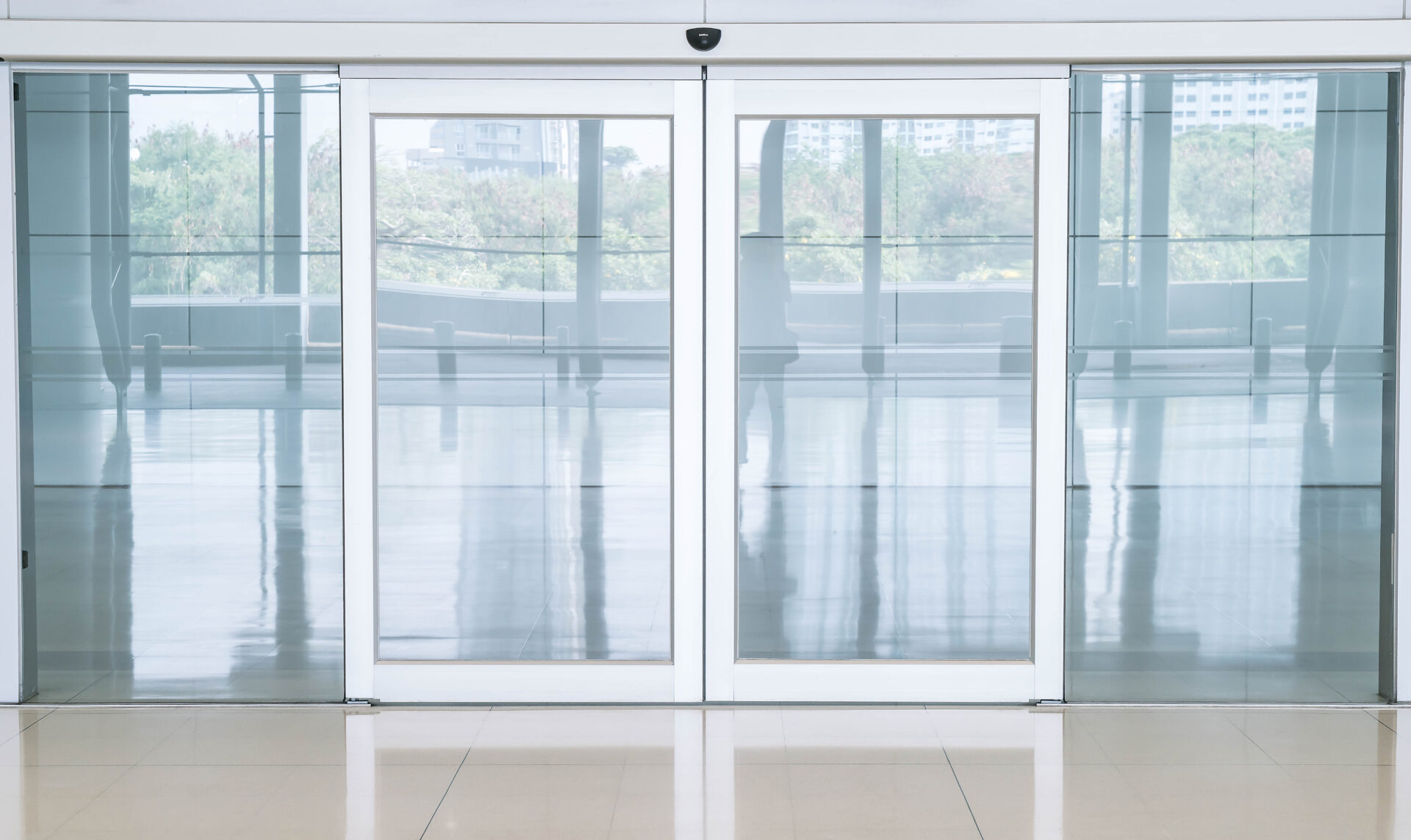
We provide a range of manual, semi, and fully automatic door systems to Glasgow businesses. Our dedication is in supplying, installing, and maintaining all types of automatic doors, from automatic sliding doors, swing doors, revolving doors, folding doors, telescopic doors, express doors, roller shutter doors, industrial doors, and more for Glasgow businesses.
All our doors are professionally installed by our expert technician team, guaranteeing full compliance with all relevant health and safety regulations.
An automatic door system is a set of mechanical and electronic components designed to operate a door automatically. Automatic door system typically includes several key elements that work together to ensure smooth, safe, and efficient door operation. The main components of an automatic door system include:






Automatic door systems are widely used in various settings such as shopping centres, airports, hospitals, hotels, and office buildings due to their convenience, energy efficiency (as they help minimise heat loss), and accessibility for people with disabilities. The design and complexity of these systems can vary greatly depending on the specific requirements of the installation site.
If you would like a FREE, no-obligation quote specifically tailored to your requirements, get in touch to find out what RACAM can do for you.
Not sure which type of automatic door to go for? Contact us today for FREE, no-obligation advice on the automatic door and the system that best suits your business’s unique needs.












Every year there are more than 1 million burglaries and attempted burglaries in the UK, and we want to help reduce that number significantly. There are many ways to protect your premises and with our knowledge and expertise, you’ll be in safe hands.
Setup by Brian Maguire & Joe Armstrong in 1998 and later joined by Brian’s son Calum, their team are proud to have protected thousands of homes and businesses throughout Central Scotland.
Our engineers are fully trained & suitably qualified, and our business is NSI accredited meaning that we are recognised by the industry’s premier security & fire certification body for our technical expertise and reassuring quality of service.
With 38% of businesses with premises finding themselves a victim of crime, the most prevalent of which was theft, having a reliable security system is a must (Gov.UK). We offer expert advice and quality products at affordable prices.
A UK home is burgled every 164 seconds (Cladcodecking.com). A home security system not only gives you peace of mind it can also deter crime. For expert advice, quality products at affordable prices contact us today. Your safety and security is our business.